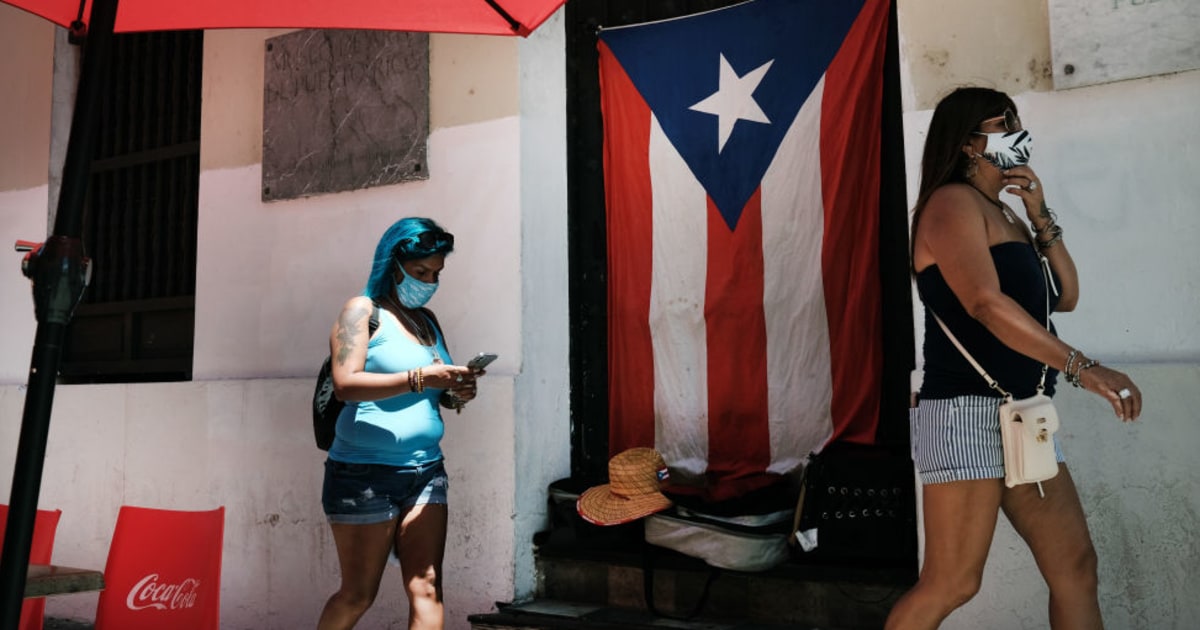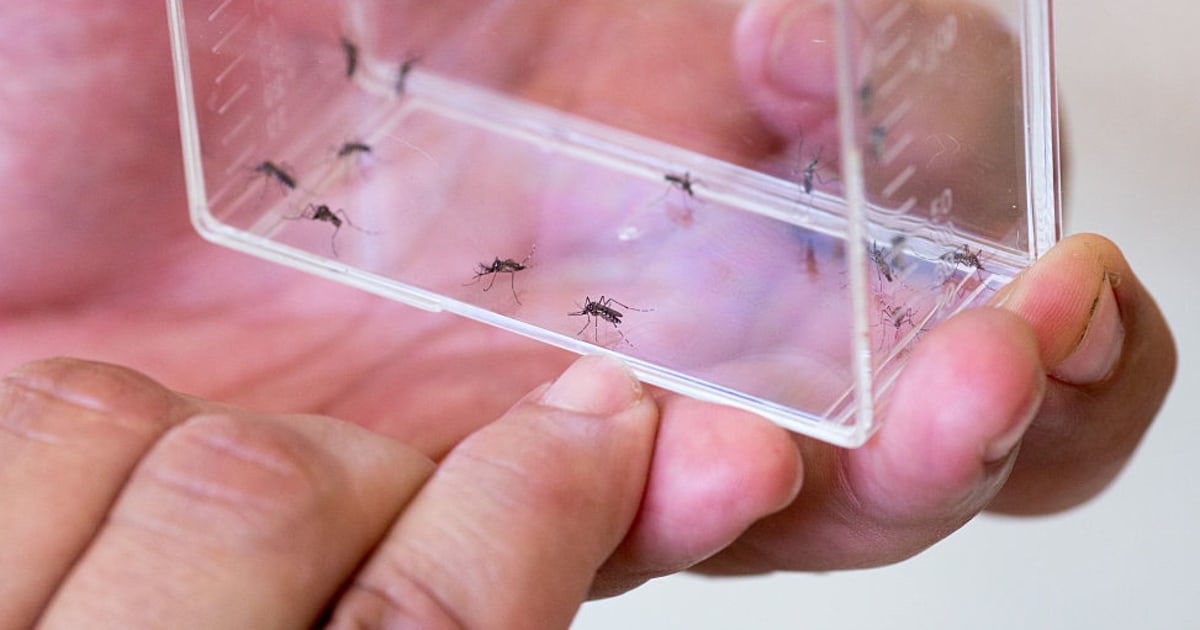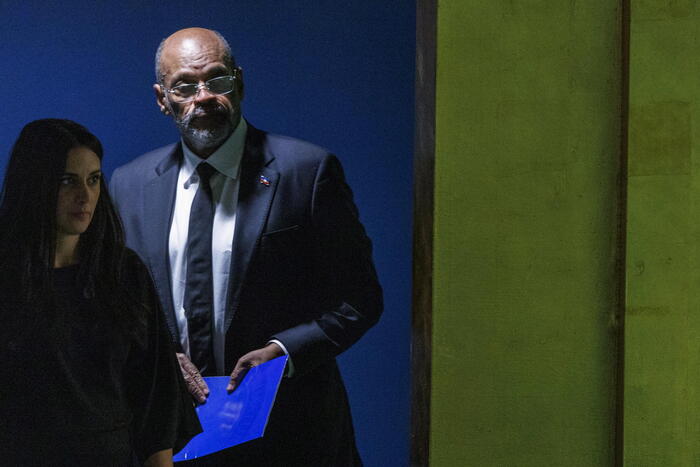By Nicole Acevedo and Eric Bazail-Eimil -
NBC News
WASHINGTON — The Puerto Rico Status Act is not expected to get a vote in the Senate before Congress adjourns on Friday, leaving an uncertain future for the bill seeking to change the status of the US territory. through a binding federal referendum.
Next year, the process will be in the hands of the newly elected Congress, which could mean a setback in the momentum already achieved in the House of Representatives.
[Puerto Rico extends the contract with the company Luma Energy despite criticism of its management due to the fragile electrical system]
The Biden administration announced its support last week, calling on Congress to "act quickly to put the future of Puerto Rico's political status in the hands of Puerto Ricans."
Hours later, the House of Representatives approved the measure in a vote of 233-191.
All the votes against were Republicans;
16 members of the Republican Party (GOP) joined 217 Democrats to pass the bill.
Puerto Rico police investigate the causes of death of salsa singer Lalo Rodríguez
Dec 14, 202201:43
But only half of the 16 Republicans who supported the legislation will return to a Republican-controlled House of Representatives next year, and the measure will face significant headwinds.
In addition, Senate Democrats will lack the votes to overcome a filibuster [a specific technique of parliamentary filibuster through a long speech].
[Thousands march in Puerto Rico to demand the departure of the energy company Luma]
Reinstating the procedure will require another vote in the House Committee on Natural Resources, which oversees affairs in the US territories, before it has a chance for a second vote on the House floor in 2023. .
The commission will not be chaired by the Democratic deputy Raúl Grijalva, the main promoter of the project.
Instead, Rep. Bruce Westerman, R-Arkansas, is expected to take over.
Westerman has accused Democrats of circumventing the regular procedure for passing the bill.
He voted against the Puerto Rico Status Act on the plenary session last week, asking "to allow a full and robust legislative process to take place."
One of the bill's main negotiators, Rep. Nydia Velázquez, D-N.Y., the first Puerto Rican woman elected to Congress, is confident that more congressional hearings on Puerto Rico's territorial status will take place in the new year.
[This is what a road that Fiona swallowed in Puerto Rico looks like. Many populations are cut off]
Velázquez said that the measure "is a clear recognition by the United States Congress that the United States exercises colonial power over the people of Puerto Rico."
The bill would establish the terms of a binding plebiscite in which Puerto Ricans on the island could choose between three non-territorial status options: statehood, independence and sovereignty in free association with the US It would also establish a transition to the new status.
A group of people walk through Old San Juan, Puerto Rico, on March 21, 2021. Spencer Platt / Getty Images
“I have seen that in Washington a change has begun in the conversation about the negative effects that the colonial status has on Puerto Rico,” said Velázquez.
“I think this is partly thanks to the Puerto Rico Status Law,” he added.
The bill marks the first time the House of Representatives has passed a binding referendum that would exclude Puerto Rico's current territorial status as one of the options.
[Five years after Hurricane Maria, the electrical crisis in Puerto Rico and a new hurricane highlight old problems]
That's intentional, said Resident Commissioner Jenniffer González-Colón, a non-voting Republican member of Congress representing Puerto Rico who is pro-statehood and helped negotiate the Puerto Rico Status Act.
Since the bill focuses on the decolonization of Puerto Rico, “we cannot have the problem as a solution,” González-Colón said in testimony before the House Rules Committee last week.
“We have been a territory for 124 years.
We don't want to continue being a territory,” she explained.
Velázquez believes that “there is some momentum that we can take advantage of in the next Congress, especially since this bill was approved on a bipartisan basis.”
What next for the territorial status of Puerto Rico?
Even if the Puerto Rico Status Act beats all odds in the House of Representatives and passes again next year, Democrats would need nine Republicans to break ranks to get the 60 votes needed to pass it in the Senate.
A handful of Republican senators representing large Puerto Rican communities in the states could be among Senate Democrats' best bets for getting the support they need.
[Legendary salsa singer Lalo Rodríguez, the voice of the smash hit 'Ven devórame otra vez,' is found dead in Puerto Rico]
Some of them have expressed doubts about the advisability of going ahead with a vote on Puerto Rico's status anytime soon, citing their financial problems.
Senator Rick Scott, Republican of Florida, believes that Puerto Rico should "get its fiscal house in order" before it decides to change its territorial status.
Scott, who represents more than a million Puerto Ricans living in Florida, has supported statehood in the past.
Dangerous drug trafficker 'El Abusador' pleads guilty in Puerto Rico
Dec 2, 202201:03
In 2015, during the Obama administration, Puerto Rico was unable to pay its public debt of 70 billion dollars, which led Congress to create the Promesa law of 2016, because US laws excluded Puerto Rico from the federal bankruptcy code. .
Promesa established the federal financial oversight board, which oversees Puerto Rico's fiscal responsibilities, and created a mechanism for the territory to restructure its debt in federal court.
[“I got on a plane and moved out the same day.” Why millionaire bitcoin investors are moving to Puerto Rico]
Puerto Rico's government formally emerged from a form of bankruptcy in March, six years after the oversight board was launched, leading to widely criticized austerity measures on an island that paid $1 billion in fees to consultants and lawyers and other expenses during the process.
“Puerto Rico cannot negotiate with other countries or control their fiscal policy,” Velázquez said.
"Puerto Ricans have been forced to compromise with the United States under the current territorial status that has almost never benefited them," he said.
“Members of Congress should be upset that the Constitution they are sworn to protect is currently being used to legitimize colonialism in Puerto Rico,” he added.
The Puerto Rico Status Act was the result of a consensus among members of Congress who previously sponsored competing bills: a pro-statehood bill introduced by González-Colón and Rep. Darren Soto, a Democrat for Florida, and the Puerto Rico Self-Determination Act, introduced by Velázquez and Rep. Alexandria Ocasio-Cortez, D-N.Y.
[“They have committed a great injustice”: Wanda Vázquez released on bail after arrest on corruption charges]
The question of status has long divided Puerto Ricans living on the island, largely due to how its local political party system is organized.
Most support the New Progressive Party, which favors statehood, or the Popular Democratic Party, which supports the current territorial status.
A smaller percentage of “independentistas” support the Puerto Rican Independence Party, which advocates independence from the United States.
Previous bills in contention, as well as the debates that took place during multiple hearings held in Congress, echoed such divisions.
Some Senate Republicans can't get over the divisive nature of the status issue.
Miss Puerto Rico Ashley Ann and designer Carlos Alberto hand in hand at San Juan Moda
Nov 8, 202203:18
"There should be a meaningful consensus on the island before the status is changed in one direction," said Sen. Roger Wicker, R-Mississippi.
Excluding Puerto Rico's territorial status also makes Wicker and others wonder.
“I'd like to make sure it's worded accurately.
That it is not designed to obtain one result over the other, ”he pointed out.
[Biden establishes priorities for the reconstruction of Puerto Rico after the scourge of Hurricane Fiona]
Soto, who also helped combine previous competing bills into the Puerto Rico Status Law, does not believe the bill will get a second vote on the House floor in the next legislature.
“But I do believe that we have a valuable opportunity in the Senate to move forward and get senators to feel more comfortable with the issue,” Soto said.
“We will continue to fight 1,000 different battles until we can win the war,” he noted.
Drawing on the lessons he has learned with the Puerto Rico Status Act, Velázquez agrees.
“There will never be a perfect bill, but members with opposing views can come together to craft a bill,” he opined.
“If the members of Congress believe in defending the constitutional values of the United States and that we should not be a colonizing nation, then I do believe that there is a consensus to get the current status of Puerto Rico changed,” he added. .









/cloudfront-eu-central-1.images.arcpublishing.com/prisa/OTWB63YVDRNKAQLEH7S4FTFBNI.jpg)